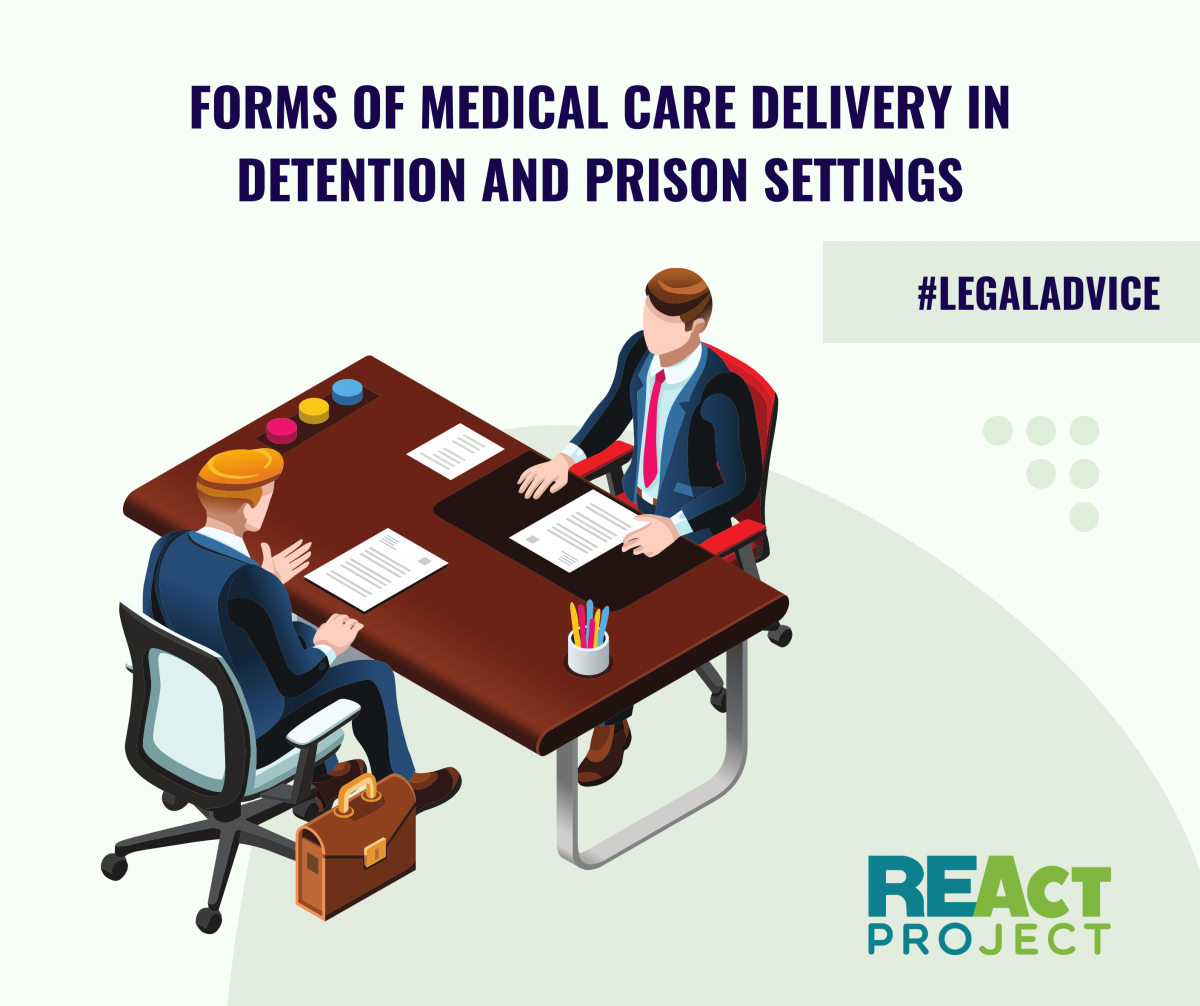To further explore the subject of medical care for prisoners, let us review the specific forms of medical care that should be made available to incarcerated individuals as well as the particular requirements that the administrations of correctional facilities of the State Penitentiary Service of Ukraine (SPS) are obligated to comply with to make sure that relevant arrangements are in place.
Mandatory preventive health assessment of prisoners.
With a view to detecting and preventing the spread of infectious diseases, as well as identifying general medical conditions and mental disorders among incarcerated individuals held in SPS correctional facilities, inmates must undergo an annual preventive health assessment, whereas juvenile (minor) detainees and prisoners held in cell-type settings have to undergo such an assessment on a biannual basis.
The following physicians have to be involved and take part in a preventive health assessment:
– general internist (or general practitioner/family doctor);
– psychiatrist;
– dentist.
If there are no such specialists available in the medical unit of the correctional facility concerned, they have to be procured by the correctional facility’s administration from SPS-controlled or other health care facilities.
Outpatient medical care for prisoners.
Outpatient medical care for incarcerated individuals should be provided by the designated medical worker of the correctional facility daily during the hours scheduled by the head of the medical unit (paramedic station) and approved by the facility’s administration. Escorted by a correctional officer, inmates who have been prescribed outpatient treatment have to report to the medical unit for their medications and other procedures during scheduled times during the day. Normally, prisoners have to take their medicines in the medical unit as prescribed by the doctor and under the supervision of a paramedic (physician assistant). However, if, based on medical needs, these medications are supposed to be taken around the clock, the dispensed medications must be handed over to the prisoner.
Inpatient medical care for prisoners.
Incarcerated individuals might need hospital care from the medical unit for the following purposes:
– health assessment and treatment of prisoners in need of inpatient care for up to 30 days;
– medically necessary inpatient treatment of prisoners discharged from SPS-controlled or other health care facilities;
– temporary isolation in the infirmary (isolation ward) of the medical unit for infected or suspected patients before referral to a specialist hospital;
– inpatient treatment of non-transportable cases until their condition becomes stable before referral to a SPS-controlled or other health care facility.
During the stay in the hospital section of the medical unit, incarcerated individuals must be examined and evaluated based on their existing medical condition across all instrumental and laboratory research options available in the medical unit concerned.
Referrals to healthcare facilities for hospitalization shall be provided to any prisoners who have become ill or experienced an acute exacerbation of the chronic disease, which requires inpatient treatment in SPS-controlled health care facilities (or, if services are unavailable and under a certain set of circumstances, said patients can be referred to general-public health care facilities), including situations when some additional examinations needed cannot be performed by SPS health care facilities (if they are outside of the scope pre-determined and require equipment, laboratories, or medical care other than that available on site).
Emergency medical care for individuals detained or sentenced to imprisonment is provided by the medical staff of the relevant SPS-controlled health care facility, or, if it is impossible to ensure the full scope of services needed, by the emergency (ambulance) team of the center for emergency medical services located in the administrative division (geographic area) where the correctional facility or pre-trial detention center is situated.
The administration of the correctional facility or pre-trial detention center where the inmate concerned is held shall be obligated to immediately summon an emergency ambulance if required and requested by the medical worker of the SPS-controlled health care facility.
If the emergency ambulance crew should decide that a prisoner needs to be hospitalized, they will be transported to the relevant health care facility by the ambulance crew concerned. In this case, the administration of the correctional facility or pre-trial detention center in question must put in place and ensure appropriate guarding and security arrangements.


